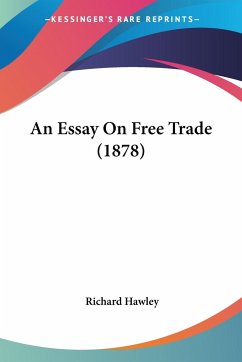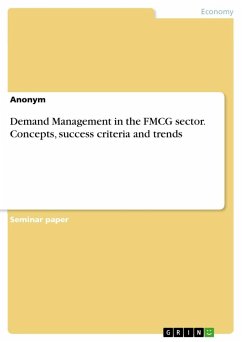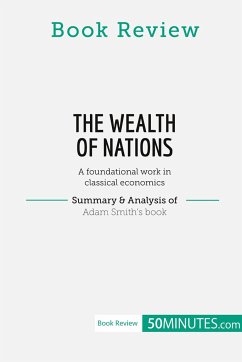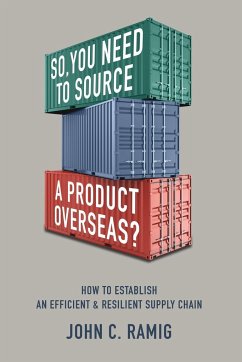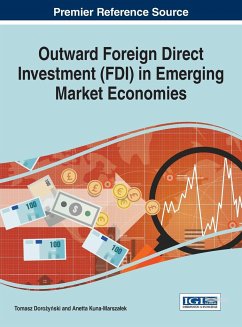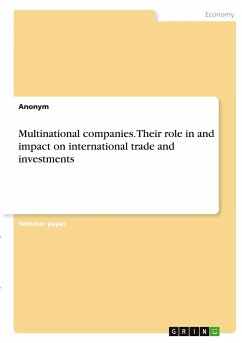
Multinational companies. Their role in and impact on international trade and investments

PAYBACK Punkte
0 °P sammeln!
Seminar paper from the year 2020 in the subject Business economics - Miscellaneous, grade: 1,3, Hochschule Ostwestfalen-Lippe - University of Applied Sciences, course: International Economics, language: English, abstract: The main objective of this scientific paper is to define the role of Multinational Companies (MNC) in the international trading system. It is to be shown which effects the contrary trade policies free trade and protectionism have on international trade and the investment behaviour of MNC. The opportunities and risks of FDIs should be identified from the perspective of the MNC...
Seminar paper from the year 2020 in the subject Business economics - Miscellaneous, grade: 1,3, Hochschule Ostwestfalen-Lippe - University of Applied Sciences, course: International Economics, language: English, abstract: The main objective of this scientific paper is to define the role of Multinational Companies (MNC) in the international trading system. It is to be shown which effects the contrary trade policies free trade and protectionism have on international trade and the investment behaviour of MNC. The opportunities and risks of FDIs should be identified from the perspective of the MNCs and investment countries.The scientific paper thesis contains five chapters. Key terms and the relation between MNC and international trade will be defined in chapter two. At the beginning of chapter three, the Heckscher-Ohlin Model will be explained. Then theorems based on this international trade theory will be used to explain the cause and effects of international trade.In the fourth chapter, the different motives of free trade and protectionism and their effect on FDIs will be examined. The potential chances and risks of FDIs for the investment receiving countries and MNCs are then discussed. In the last chapter, the key findings of this paper are summarized. The paper ends with a conclusion and an outlook, where further significant research needs are addressed.Companies are forced to permanently increase their efficiency and effectiveness in all functional areas to stay competitive. In today´s competition, it is almost impossible to avoid the international markets, especially for large enterprises. The strong internationalisation of the global economy over the past decades can be attributed to the increased volume of goods, services and technologies traded internationally. There has also been a strong increase in foreign direct investments (FDIs). However, the trend over the last decade has gone in the opposite direction, especially for developed countries.TheGeneral Agreement on Tariffs and Trade (GATT) is intended to provide a basis for free international trade, but an increasing number of national laws and regulations lead to a multitude of trade barriers. The growing use of customs and other instruments of protectionism, particularly by the industrialised countries, is one of the central unsolved problems of international trade. These measures aim to preserve national advantages at the expenses of the wealth of the global society.






